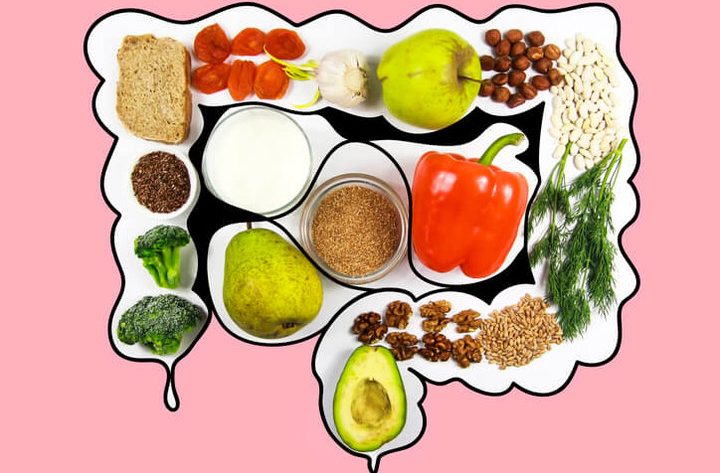A recent study by the Stanfort University School of Medicine could particularly worry supporters of the low-carb diet, but also all people who eat a lot of fast food and ready-to-eat foods. The scientists led by Professor Justin Sonnenburg have found that our western diet, which is often lacking in fiber, damages the intestinal flora sustainably and irreversibly and thus has an extremely negative effect on our health.
The study comes to the conclusion that eating foods that are high in carbohydrates and low in fiber lead to a decrease in the number of intestinal bacteria from generation to generation. Thus, this diet is not only disadvantageous for the individual, but the associated problems are passed on.
A healthy bowel is important for a healthy body
Intestinal bacteria take on many important functions in our body because they influence our intestinal flora. If the intestinal flora is not healthy, this has negative effects on our entire organism. It helps to fight many pathogens and render them harmless. In addition, the intestines properly absorb most of the nutrients that we take in with our food. If the intestinal flora is not healthy, we lose many vitamins, minerals and trace elements. The intestine thus influences the immune system , hormone control, metabolism.
Many factors affect the health of the intestinal flora. First of all, a large part of the bacterial species is transmitted from mother to child via breast milk after birth. Thus, the mother’s diet and intestinal health play a decisive role in the development of the intestinal flora on her children. If children are not breastfed, this leads to a depletion of the types of bacteria in the child’s intestines. In addition, taking antibiotics negatively affects the intestinal flora in the long term.

Dietary fiber is food for beneficial intestinal bacteria
But like the study now shows that nutrition in particular has a very large influence on the intestines. A diet with low-fiber, highly processed foods means that we only consume a tenth of the amount of fiber today, as it was in the times of hunters and gatherers or a rural-agricultural population. The bacteria in our large intestine feed primarily on fiber, which we cannot digest. A diet with too little fiber literally starves them to death.
In the mice studied, after seven weeks of fiber-free diet, around 75 percent of the intestinal bacteria species have disappeared . Even after switching to a high-fiber diet, around 30 percent of the bacteria species have not reappeared.
Intestinal problems caused by too little fiber are inherited
The actually surprising result of the study, which was published in the journal “Nature”, was that a low-fiber diet after four generations led to the disappearance of almost three quarters of the beneficial intestinal bacteria species, i.e. it has an impact across generations. What long-term consequences this will have on human health cannot yet be foreseen. Presumably the typical complaints of a low-fiber diet are like Flat stomach and stomach pain , will continue to increase in the future.
Even if this is a intergenerational phenomenon that has many factors, every individual can try to do something for one’s individual intestinal health. The study shows how important a high-fiber diet is, but where is it actually found and which foods should be avoided?
Tips for a high-fiber diet
In particular, highly processed foods made from simple carbohydrates have hardly any fiber. So everything made from white flour and with a lot of sugar should be banned from our menu as best as possible. This is especially found in highly processed foods. For this, food, freshly prepared, with a high proportion of fiber should be consumed. These include above all:
- Rye, spelled, wheat bran, oats, barley and their products
- Cabbage, corn, carrots, cauliflower, kohlrabi, fennel, beetroot, broccoli
- Legumes
- Berries, kiwi, bananas, pears, apples
- Dried fruits
- Nuts, almonds and oil seeds
- Mushrooms
- To supplement superfoods, such as:
- Chia seeds
- Psyllium husks
- Lucuma

A look at the list shows that the diet for a healthy intestinal flora should mainly consist of whole grains, fruits, vegetables and nuts (and seeds). Only if as much of it is on our menu as possible will our body get enough fiber and stay healthy in the long term.




